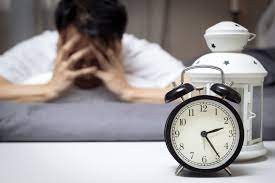For those who live with insomnia, nightfall can be filled with frustration and loneliness. As the world sleeps, insomniacs lie awake, restless and searching for sleep. Insomnia is not just about being tired; it’s a complex condition that affects mental, emotional, and physical well-being. This blog explores the silent struggles of insomnia, its causes, effects, and ways to find relief.
Understanding Insomnia
Insomnia varies in its severity, duration, and type. It affects millions of people worldwide. Generally, insomnia involves difficulty falling asleep, staying asleep, or experiencing restful sleep. These challenges lead to fatigue, irritability, and poor concentration during the day.
There are two primary types of insomnia:
- Acute Insomnia – Often short-lived, it’s triggered by specific stressors, such as work pressure or emotional distress. Once the issue is resolved, sleep usually returns to normal.
- Chronic Insomnia – A long-term issue that lasts at least three nights per week for over three months. Chronic insomnia often has no immediate cause.
Causes of Insomnia
Insomnia’s causes are varied and often overlap. Common triggers include psychological, physical, and lifestyle factors.
- Stress and Anxiety Stress is a frequent insomnia trigger. Daily worries, like financial or relationship issues, can keep the mind active at night. The worry about falling asleep adds to anxiety, making rest even harder to achieve.
- Mental Health Conditions Insomnia is often linked to mental health issues like depression and anxiety. People with depression may wake up early and find it hard to go back to sleep, while anxiety can make it difficult to relax before bed.
- Chronic Pain and Discomfort Conditions like arthritis, migraines, and back pain can make comfortable sleep difficult. Each movement at night may trigger discomfort, keeping restful sleep out of reach.
- Poor Sleep Habits Irregular sleep patterns, too much screen time, and caffeine consumption before bed can disrupt the body’s natural rhythm. These habits affect the body’s sleep-wake cycle, making sleep more challenging.
- Medications and Substances Certain medications, like antidepressants and stimulants, have side effects that can cause sleeplessness. Similarly, substances like caffeine, nicotine, and alcohol also interfere with sleep.
- Environmental Factors External factors, such as noise, light, and uncomfortable room temperature, disrupt sleep. Living in a noisy or bright area can make it even harder for light sleepers to fall or stay asleep.
The Impact of Insomnia: Beyond Fatigue
Insomnia’s impact extends beyond nighttime struggles; it affects all aspects of daily life.
- Cognitive Impairment Sleep is essential for clear thinking, memory, and concentration. Chronic insomnia leads to “brain fog,” making it hard to focus or retain information. Over time, cognitive decline affects work, school, and everyday life.
- Emotional Challenges Lack of sleep impairs emotional regulation. People with chronic insomnia often experience mood swings, irritability, and stress. Over time, these emotional issues can worsen, potentially leading to depression and anxiety.
- Physical Health Risks Chronic insomnia increases the risk of health issues like heart disease, hypertension, and diabetes. Sleep supports immune function, so prolonged insomnia can weaken the immune system, making people more prone to illness.
- Quality of Life Insomnia affects the ability to enjoy life. Everyday activities become exhausting, and relationships may suffer due to emotional instability. Over time, insomnia can make people feel isolated and discouraged.
Managing Insomnia
Though insomnia can feel relentless, effective approaches can help manage and even relieve symptoms.
- Cognitive Behavioral Therapy for Insomnia (CBT-I) CBT-I addresses the thoughts and behaviors fueling insomnia. This therapy includes relaxation techniques and changes to bedtime habits, helping improve sleep quality over time.
- Establishing Sleep Hygiene Setting a consistent sleep schedule, limiting screen time, and avoiding caffeine can improve sleep hygiene. A dark, cool, and quiet room also supports a good night’s sleep.
- Relaxation Techniques Practices like progressive muscle relaxation, deep breathing, and meditation can help calm the body and mind. These techniques reduce sleep onset time, promoting better sleep.
- Medication and Sleep Aids In some cases, short-term medication can help with severe insomnia. Options include over-the-counter sleep aids, but it’s important to buy zopiclone 7.5 mg online only with guidance and only for temporary relief.
- Lifestyle Adjustments Exercise, healthy eating, and daytime sunlight exposure help regulate the sleep-wake cycle. Activities like yoga or journaling can also ease stress, making it easier to fall asleep.
- Improving Sleep Environment Investing in blackout curtains, earplugs, or white noise machines can create a better sleep atmosphere. Small adjustments like these make a big difference for light sleepers.
Finding Hope Amidst Sleeplessness
Living with insomnia can feel isolating, but help is available. A sleep specialist or CBT-I therapist can offer solutions tailored to each individual. Support groups and online communities also provide encouragement from others who share similar struggles.
Insomnia is more than just missing sleep—it touches every part of life. Though the journey to restful nights may be slow, with patience, persistence, and support, relief is possible. Breaking free from insomnia requires dedication to positive habits, mental health care, and sometimes medication.
If you or someone you know is dealing with insomnia, know that relief is within reach. Finding a good night’s rest may take time, but it is worth the effort. With the right tools and support, those struggling with insomnia can reclaim their nights and enjoy a more fulfilling life.



